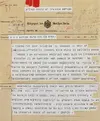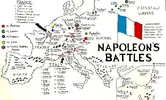summerisle
The rain, it raineth every day
He'd been told of threats against him but ignored them.I don't know if I agree with the comparison. Sarajevo was the capital of a territory that was formally annexed to the Austrians in 1908, having been agreed by treaty in 1878 as under Austrian administration. The years following Bosnia's formal annexation were complicated, but it can be argued that Serbia was making moves to extend trading relations with the empire. It was precisely the thawing of relations between Vienna and Belgrade that spurred the nationalists into action.
Franz Ferdinand would have been aware of Serbian economic reforms, moves towards trade deals, as far as I know he wasn't made aware of ultra-nationalists perceiving his supposed moderation as a mortal threat for them.
Heydrich drove in an open topped car as a sign that he deemed German occupation of Bohemia, Moravia as complete, enduring and beyond challenge. I agree hubris on his part, performative or sincerely believed, it would cost him his life.
At best I would lay a charge of naivety at Franz Ferdinand, poor local planning and local intelligence failings. Heydrich, hubris, no question.
“We’re entitled to ask ourselves why, at this point, the archduke didn’t simply call the visit off,” Christopher Clark, a professor of modern European history at the University of Cambridge and author of The Sleepwalkers: How Europe Went to War, told NPR’s All Things Considered in 2014.
“That was proposed by some members of his entourage,” said Clark, “but he hated being told what to do. He was a very irritable man, and he said ‘don’t be ridiculous.’”
Instead, the group continued on to Sarajevo’s city hall, where they met with dignitaries including the mayor, who failed to alter his prepared speech about the happy and “enthusiastic” greeting Sarajevo’s citizens were offering to the archduke












